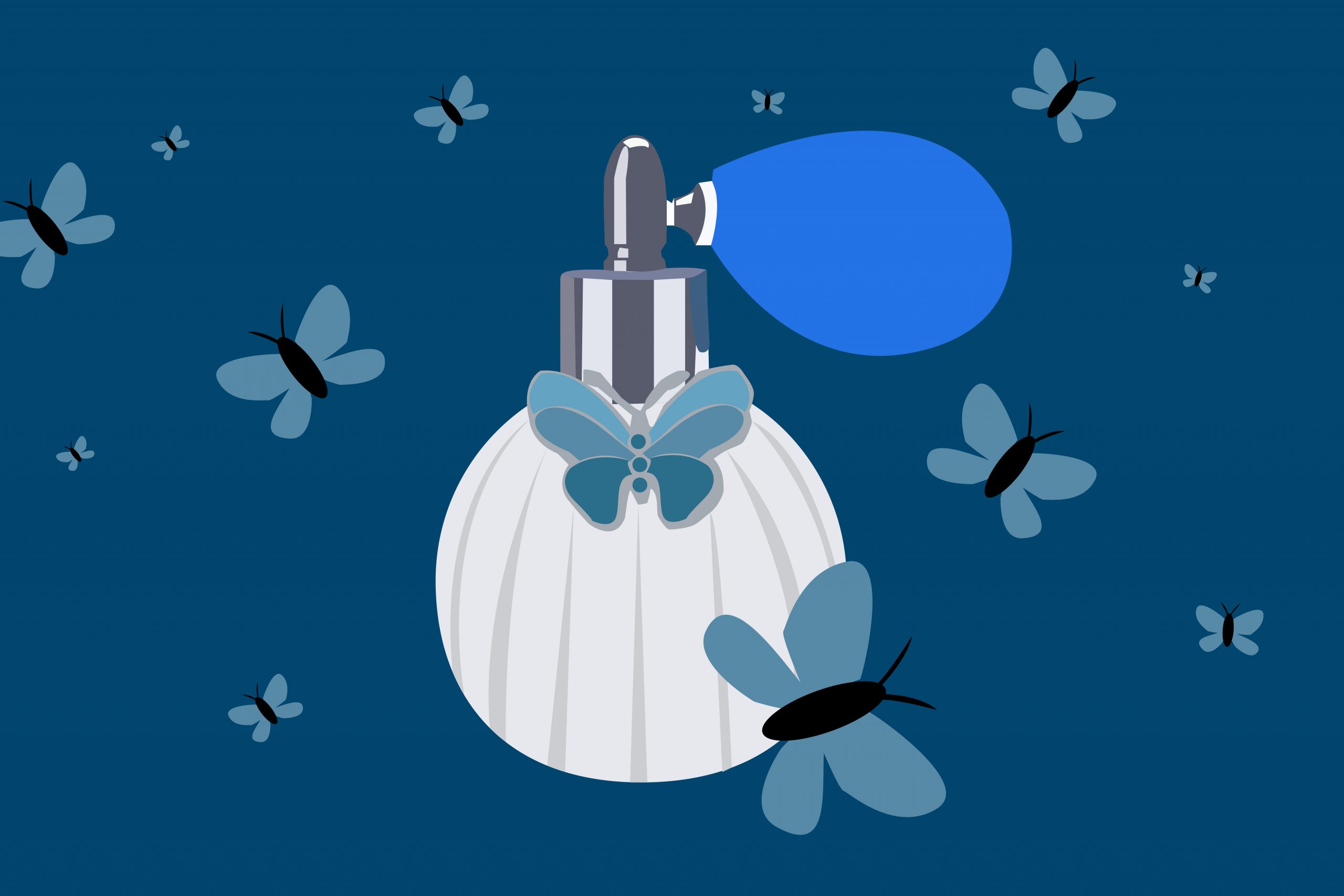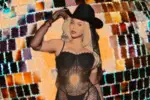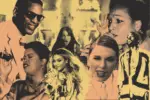In my personal opinion, there’s nothing more ridiculous than a perfume commercial. While none of them are exactly alike, they’re made instantly identifiable by the lavish situations they portray and the common settings they adopt (a field of flowers is a dead giveaway). Without fail, they always star gorgeous celebrities doing the extraordinary, like dancing in the stars or riding a horse at high speeds through city streets. They contain high levels of glamour and A-list spokesmodels like Charlize Theron and Beyoncé draped in gold or dripping in diamonds. They always end with someone whispering “Gucci guilty” or “J’adore Dior.” They consistently evoke the fantasy genre, relying on romance and other dreamlike elements to promote their scents. They both captivate me and confuse me each time they grace my screen, for all of the reasons detailed above, so I’ve decided to get to the bottom of why they’re so ridiculous.
For starters, even the best smelling fragrances cannot be marketed like other cosmetics. You can show how a mascara adds length and definition to someone’s eyelashes on film but you can’t convey the aroma of a flowery spritz with notes of cedarwood. Instead, perfume has to be marketed more strategically in order to sell products. Extravagance must be conveyed to grab consumers’ attention, especially coming from luxury brands such as Chanel, Armani and Prada.
“Perfumes have also carried the air of luxury, and they have been attached to certain classes in certain ways, i.e. the ‘smell of cheap perfume,’” Leena-Maija Ross, a professor at the Swedish School of Social Science, told Nylon in 2017. “That is one reason why the surroundings in the ads are often so fantastical, full of signifiers of wealth…It’s aspirational for those watching.”
Another element that attracts people to perfume commercials is their sensuality. To invoke the age-old adage, “sex sells” perfume. Ads are often voyeuristic, relying heavily on sexual scenes to encourage consumers to buy product. The best example of this can be found in a 27-second-long Dior ad starring Robert Pattinson and Camille Rowe. The concept is quite simple — they’re just making out in an elevator. Just looking at the comments section, it’s abundantly clear that the romantic ad has reached its target audience.
https://www.youtube.com/watch?v=m7jiCqMKEIk
“Leaning on representations of the sexual body has been legitimate for the perfume ads at least partly because perfume is connected to sensuality and bare skin,” said Ross. “You can only sense/smell it if you are close enough to the person wearing it, therefore it is tied to intimacy.”
However, most commenters paid less attention to how Dior Homme might smell (Moroccan grapefruit, Calabrian bergamot, Crimean coriander, Tuscan iris and Virginia cedarwood for those who are actually curious) and more on “the hands…THE HANDS.” “i don’t even get how this is a commercial but i’m not complaining,” wrote another, which, honestly, perfectly sums up my attitude toward most of these advertisements. I don’t know how many of the 1 million viewers actually went out and bought the cologne, but it certainly left a lasting impression on viewers, many expressing that they’ve returned to watch the clip over and over again.
Burberry’s 2021 commercial starring Adam Driver found itself in a similar situation. Sure, people remember it, but they probably won’t be able to recall the fact that the scent is “brightened with sparkling bergamot and invigorated with juniper and black pepper.” It’s far more likely that they’ll remember the fact that the Oscar-nominated actor became a majestic centaur at the end, the cinematic final shot revealing his new form as he stares off into the sunset dramatically (a moment that the internet had an absolute field day with). The same goes for Gucci’s Flora Fantasy ad starring Miley Cyrus. A number of viewers commented that they want the full-length version of her “Delicious” cover and that they love how she turns into a Sailor Moon-esque anime character halfway through.
https://youtu.be/AoErx-fGiPw
All of the above calls the effectiveness of these fantastical ads into question, as it appears they’re much better at being memorable than actually selling product. In fact, in 2016, Bloomberg reported on a study completed by the management consultancy firm A.P. Kearney that revealed that while the fragrance industry spends around $800 million a year on advertising, fragrance advertisements are not actually that successful. Out of the almost 1,000 people who were surveyed, only 6% cited perfume commercials as the reason they went out and purchased the product. The study further revealed that this is because once most people find a scent they like, they stick with it for years and are unlikely to be persuaded to try something new, 40% of purchases being for the same product.
In 2022, the fragrance industry is estimated to be worth about $47.9 billion. According to Business Insider, there was a boom in fragrance sales during the pandemic, going up 45% in the first quarter of 2021. They attributed this largely to the fact that people were less concerned with buying makeup products now that over half their faces were shielded by masks and now wanted to express themselves in a different way. However, Larissa Jensen, the vice president and beauty industry advisor to the NPD Group, didn’t credit perfume commercials with anything to do with consumers’ decision-making, rather suggesting that choices were made while reminiscing about a life pre-March 2020.
“There’s a science behind your sense of smell and how it’s directly related to memory — you smell something and it brings you back to a moment in time,” Jensen told Insider. “And if you think about what we all went through, it could be, to a degree, consumers wanting to escape.”
Escapism, of course, harkens back to what we established at the very beginning — perfume commercials belong to the fantasy genre. They’re intentionally strange and whimsical, meant to leave lasting impressions on their viewers by portraying an over-the-top lifestyle that these luxury brands hope consumers will want to indulge in. However, it might just be a fantasy that they actually sell anything at all.

















